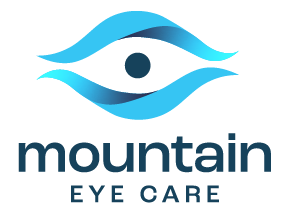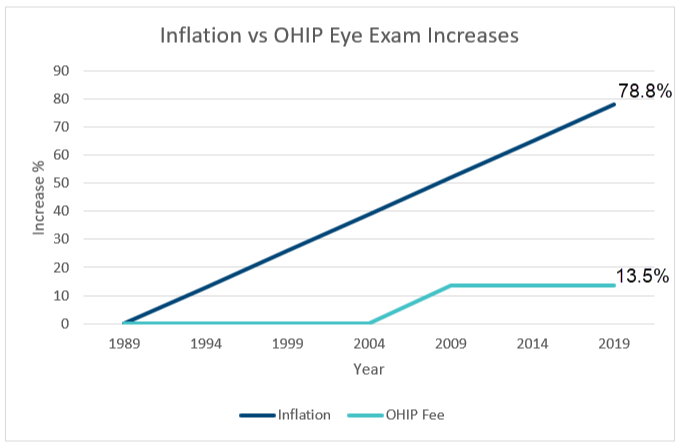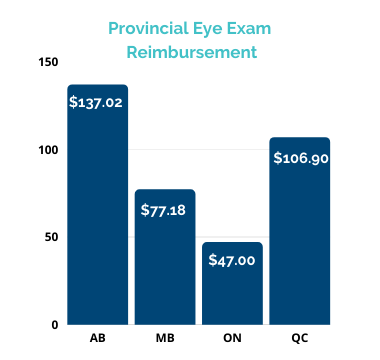
As we prepare to recognize World Sight Day on October 11th, 2018, we ask that you think about your eyes and your vision. According to The Canadian Association of Optometrists, approximately 285 million people worldwide live with low vision or blindness. Perhaps most shockingly is that 80% of these cases are preventable.
It is important to understand the risk factors and symptoms of the most commonly diagnosed eye diseases and vision issues. Early diagnosis and treatment are key to reducing your risk of permanent damage to your eyes and to your vision.
Refractive Errors
Refractive errors are the most common vision impairment and are also the most easily corrected. The four most common forms of refractive errors are:
- Nearsightedness (myopia); difficulty seeing distant objects
- Farsightedness (hyperopia); difficulty seeing close objects
- Presbyopia; difficulty reading
- Astigmatism (irregularly curved cornea); causes distorted vision
Symptoms of refractive errors include but are not limited to blurred vision, headaches and squinting. While refractive errors cannot be prevented, they are the most easily treated with prescription glasses or contact lenses.
Cataracts
The lens of a healthy eye is clear while a lens affected by cataracts becomes cloudy. Cataracts cause blurred vision, difficulty driving at night and make it difficult to read and see objects up close. Symptoms also include sensitivity to light, a frequent need to change prescription eyewear, as well as double vision.
As we age, we are naturally more susceptible to developing cataracts, but it is important to know your family history as genetics can be the most significant risk factor. Other risk factors for cataracts include diabetes, unprotected exposure to UV rays, smoking, and high blood pressure.
The progression of cataracts is often slow, but it is important that their growth is monitored by an optometrist or opthamologist regularly. As the cataracts grow, the lens becomes increasingly clouded and vision becomes more impaired.
Glaucoma
Glaucoma is an eye disease that is caused by an increase in the intraocular pressure in your eye and is the leading cause of irreversible blindness in the world. It usually attacks the peripheral vision first, as the pressure increases, the risk of damage to the optic nerve also increases. If left untreated, glaucoma can lead to loss of central vision and blindness.
A family history can increase your risk of developing glaucoma but other risk factors include high blood pressure, heart disease and diabetes. The best prevention for glaucoma is ensuring that you are scheduling regular, comprehensive eye exams. If your eye pressure is higher than average, an optometrist can prescribe a daily eye drop that will help to lower the intraocular pressure before it becomes glaucoma.
In the early stages of Glaucoma, most patients experience no symptoms. As the disease progresses, patients can start to experience haziness in their vision and halos as well as loss of peripheral vision.
Early diagnosis is key to the treatment of glaucoma to ensure the disease is controlled with treatment started as soon as possible. Glaucoma can be treated with eye drops, oral medication, surgery or any combination of these treatments. The goal of these treatments is to slow the progression and to prevent vision loss.
Macular Degeneration
Macular degeneration occurs when the small central area of the retina begins to deteriorate. While macular degeneration does not typically cause total blindness, it is a source of extreme visual impairment. Early detection of this disease is very important to begin treatments that may help to delay or reduce the severity of the progression.
As with many other visual impairments, age and family history are amongst the top risk factors for macular degeneration. Other risk factors include prolonged sun exposure, obesity, smoking and high blood pressure. Doctors recommend eating a healthy diet, regular exercise and protecting your eyes with sunglasses as the best ways to help prevent macular degeneration and informing your optometrist of any family history is extremely important.
In the early stages of macular degeneration, the most common symptom is distorted vision. This can include straight lines appearing bent or curved or it can show as dark, blurry areas in your central vision. As the disease progresses, these symptoms become amplified.
Diabetic Retinopathy
Diabetic Retinopathy is an eye condition that can develop in people living with type 1 or type 2 diabetes and is caused by damage to the blood vessels at the back of the eye. If you are diabetic, annual comprehensive eye exams are crucial to ensure your vision is not impaired by this disease.
In the early stages, symptoms of diabetic retinopathy can be irregular or non-existent, but as the disease progresses, patients often describe blurred vision, fluctuating vision or spots/floaters in their line of sight.
As a diabetic, you are at risk for developing this disease and your risk is increased if you also suffer from high blood pressure, high cholesterol or are having difficulty controlling your blood sugars. Ensure you are eating healthy and exercising regularly to control your blood pressure and cholesterol and that you are frequently monitoring your sugar levels. Contact your optometrist immediately if you notice sudden changes in your vision.
Top FIVE Tips for Taking Care of Your Eyes
- Book an eye exam – Schedule an annual comprehensive eye exam with an optometrist that you trust as well as an annual physical with your family physician – underlying medical conditions increase your risk of developing vision issues.
- Know your family history – Ask your family lots of questions about your parents, siblings, grandparents, great-grandparents, aunts, uncles & cousins – not just about eye health history, but also about other notable medical conditions
- Wear sunglasses – Protect your eyes from the harmful UV rays by wearing top quality sunglasses…even on overcast days!
- Exercise regularly – Set aside 30 minutes per day for light exercise…take the dog for a walk, go for a swim, play a sport – anything to get your body moving
- Eat healthy foods – Healthy heart + healthy gut = healthy eyes!


